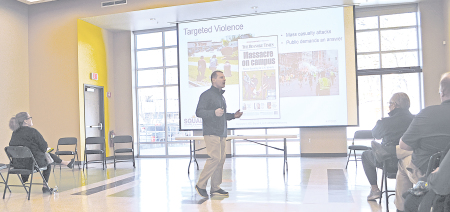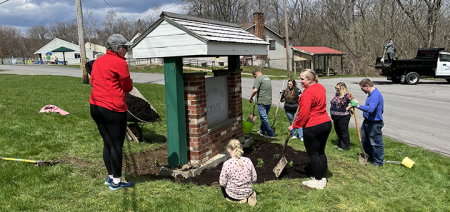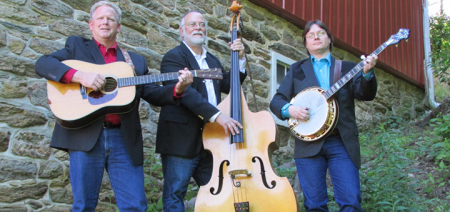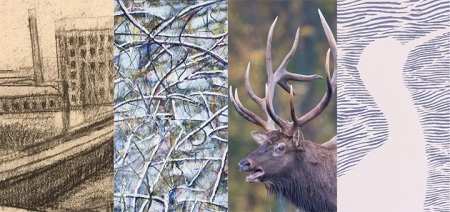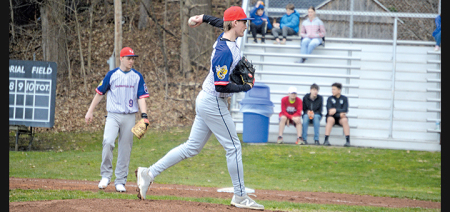My Name Is Anonymous ... And I Am A Drug Addict
Published:
April 8th, 2013
Editor’s note: The following Letter to the Editor was recently submitted and its author requested it be printed anonymously, something I was hesitant to do considering The Evening Sun’s policy concerning submissions of letters for publication. However, after verifying its authenticity – and considering the message contained within – I ultimately decided there was no way I could, in good consience, not print what you are about to read.
Editor,
Hello. My name is Anonymous and I am a drug addict.
Following the recent articles about the increase in heroin use around Chenango County, I felt the time was right to share a bit about my experience and the circumstances that brought me to Binghamton seeking treatment.
Addiction is a difficult subject and, to be honest, that’s putting it mildly. Even professionals in the field of addiction treatment and care profess a degree of ignorance in the matter. There is no cure for addiction and, despite shared symptoms, every person afflicted with this life-threatening disease takes a different path and requires different levels of care.
Addiction is without bias. It does not see color, age, sex, education, socio-economic status or religion. It is cunning, baffling and deadly without regard to who you are, how you grew up or what you believe. The 21-year-old man shooting dope on the streets and the 65-year-old woman swallowing Valium by the handful are on the same footing and deal with the same consequences.
Both risk alienating family and friends; both risk overdose or other serious health concerns. Also, faced with that inevitable day when their stash runs out, both will perform usually unthinkable acts to get what they want.
We’ve all seen the consequences of these actions in the police blotter or obituaries. Many of us have experienced first-hand the heartbreak of watching a loved-one end up in jail, an institution, or dead. But is there a way to halt the decline before reaching that point?
In recovery we call it a moment of clarity. It comes at different times for every addict and it may come more than once before the actual decision is made to change. For some lucky addicts this moment comes early, before the self-destruction becomes too devastating. For most addicts, it takes reaching their personal bottom. It’s that moment where there seems to be no way out but up.
I remember very clearly reaching my bottom. Although the downward spiral had lasted for months, even years, it was within one week that everything came crumbling down around me. I was fired from my job for being unreliable and negligent. My car, which I had neglected to take care of for months, finally broke down. I was forced to flee from my apartment which had been overrun by pushers and users desperate for a couch to call home.
I owed a lot of people a lot of money and my list of non-using friends that still talked to me I could count on one hand (a few fingers remaining useless, I might add.) I was exhausted, sick and utterly without hope. My mother, the most supportive and comforting force in my life through countless periods of ups and downs, had only three words left to say: “You need help.”
And I did. For so long I was convinced that all I needed was willpower and the right circumstances to throw the vicious monkey from my back. I believed I was too smart and too determined to be a true drug addict. For the first two years I had a clean record, maintained two good jobs and stayed socially active within the community. I wasn’t active in a church but I still considered myself a spiritual person.
Above all else, I considered myself a rational person and a rational person couldn’t really be a drug addict, right? I even tried to stop a few times. But when the crippling withdrawals and emotional vulnerability led me right back out it was all too easy to convince myself that I could stop whenever I wanted; I just had to wait for the right time. Again and again my intellect became my worst enemy, coercing my thoughts with excuses and rationalizations.
However, when all of these notions that had helped me hold on to my addiction vanished I was left with nothing but a guilty conscious and a desperate desire to get clean.
But where could I go? I was fairly certain there was no rehab in Chenango County and the whole 12 Step deal was just a plot device as far as I was concerned. I spent two days calling rehab centers in Albany, Rochester; even as far away as Maryland and Connecticut. Everything involved either insurance I no longer had or a waiting period of at least a month.
I knew Mental Hygiene Services offered some sort of drug and alcohol classes or groups but I needed something drastic, as is the case with most addicts in the grip of the disease. I wanted to be clean but every second I was walking around was another chance for me to change my mind.
It is so difficult to imagine, or even describe, the insanity that controls the mind in active addiction. Despite all that had gone wrong, everything I had lost and the few precious things I would undoubtedly lose (namely my freedom and my life) the desire to keep using brought me so close to abandoning even this last ditch effort at redemption.
Many addicts do exactly that when they have no immediate options. Lack of funding, transportation and support can be enough to keep most out on the streets for a long time after their initial moment of clarity. When that fleeting thought strikes there has to be immediate action.
It was this need to do something, anything, that led me to Binghamton, with the intention of throwing myself at the mercy of the hospital, hoping they could help. After all, wasn’t that how it worked in movies? Drop the addict at the door and let the orderlies in white take over. When I was told that no such program existed at Binghamton General I thought all hope was lost. But instead of admission they gave me the phone number to the Addiction Crisis Center.
I didn’t know it at the time, but this would be the number that changed my life.
The ACC is an inpatient detox facility that provided me a bed for two weeks and the resources to start putting my life back together. To be honest, I’ve never been so scared in my life as when I rolled up to that drab, concrete building with three changes of clothing and a toothbrush. I didn’t know what to expect. I didn’t even think I could interact with other people sober, let alone live with them for two weeks.
I walked into that place a pale, shrunken man. I had no home, no job, no money, no insurance, no car: I didn’t even know anyone in the area.
I left two weeks later with many things but, most importantly, I left with hope.
It’s difficult to imagine the pain that accompanies a complete lack of hope. It was hard to imagine a life that didn’t include the constant desire for a fix, the searching for that fix, and the despair that followed. I felt abandoned and alone. No one had gone through exactly what I went through, therefore, no one could truly understand my pain. In the midst of my desperation it became increasingly easy to question what the point was of getting clean. Was it possible that I had fallen so far there would be no way to get back up?
Within the first week I had applied for DSS assistance, secured a place to live in a safe environment designed to help men like myself, I was enrolled in an intensive outpatient rehab program at New Horizons and most importantly I had regained a sense of hope for the future.
The people I met in the ACC, both staff and clients, I attribute with saving my life. Most importantly, I became re-acquainted with myself, someone I had lost all respect for and come to loathe over the previous months. I rediscovered talents and regained a passion for life that I thought long gone.
During my stay I was introduced to the 12 Steps and the Alcoholics Anonymous/Narcotics Anonymous programs. I fully accepted the fact that I have a terrible disease called addiction that I will have to work on for the rest of my life. It is an insidious sickness that never fully goes away but can be managed if I am willing to put in the time and effort.
Although the task seems daunting at times, nothing compares to the guilt, shame, fear and pain I experienced while using drugs. I have lost contact with many people I once called friends. People that ignored or encouraged the harm I was doing to myself on a daily basis cannot really be called friends. I have put myself in a vulnerable position, admitting to the world that I am a drug addict. Many people do not view addiction as a disease but as a lack of character or will-power. I don’t blame these people; I thought the same thing before I sought help.
I take comfort in the dozens of friends I have made since entering this program. Sober friends that have taught me how to live again. That may sound cliche, it may sound downright corny to some, but it was impossible for me to see the extent to which my life was falling apart until I removed the factor that had taken control of every single decision I made.
I take pride in having a good relationship with my mother. I know she doesn’t have to go to sleep wondering if I have a place to rest my head. She doesn’t have to fear receiving that dreaded call in the morning from the police or the hospital.
Most importantly, I’m putting my life back together. The addict; the liar; the thief; the cheat, I was all of these things and more. I have many regrets from those dark days that were controlled by heroin, but every day I stay clean is another step towards making amends for the wrongs I did and brings me closer to getting back everything I lost.
None of this would have been possible without taking that first leap into the unknown called sobriety. And that leap wouldn’t have been possible without the ACC and the many people who believe there is redemption for even the most desperate and far gone addict. They taught me that death is the only thing which cannot be helped and as long as I still draw breath there is hope for a better life.
There is heroin in Chenango County. There’s also cocaine, meth, crack, bath-salts, weed, speed, shrooms, GHB, LSD, PCP, DXM (that’s cough medicine) and pills in every shape, size and color. Take all those away and the bars will still be open. As long as there are mood-changing, mind-altering substances there will be addicts. But as long as there is another option, a way out, hope, there can also be recovery.
There are many fine people in Chenango County that fight to keep drugs off the streets and out of curious hands, and I commend all of those members of the community for doing their jobs well.
But, on the whole, we are LOSING this fight.
Addiction is a disease in the individual but it is a plague on the community as a whole. You can cut off infected parts of the body day and night but the disease will continue to spread. Yes, the sickest parts must be removed but the disease must also be treated.
Arrest ten drug dealers, or 20, or even 100; there will be a void and trust me, there are countless pushers just waiting to step in and fill it. As long as there is demand there will be a supply and at the moment, both are endless.
Law enforcement does their job well and I in no way discount the part they play. However, there must be opportunities for drug users to escape the vicious cycle in which they’re caught. Give the drug users a way out, besides jail or death, and many will take it. Reduce the demand and there will be no reason for the dealers to come to Norwich.
I’m not ignorant, I know an ACC doesn’t get built in a day. A rehab doesn’t open it’s doors at the wish of one man who longs to see a city, a town, and a county he came to love recover and regain its strength. But I have seen this community come together and do amazing things in times of crisis. The strength and dedication of the people has never failed to amaze me, and if everyone stands together for the sake of this growing portion of its population, we will see a positive change.
These people, these addicts, are not the blight upon the landscape. In truth, it is the confusion and lack of understanding that allows the plague of addiction to creep further into our backyard. Knowledge and compassion are needed to fight this disease.
With these weapons we can fight and win back our brothers, sisters, mothers and fathers. We can see life bloom in the eyes of our sons and daughters. We can welcome friends back into our lives and together make Chenango County beautiful and whole once again.
Comments
